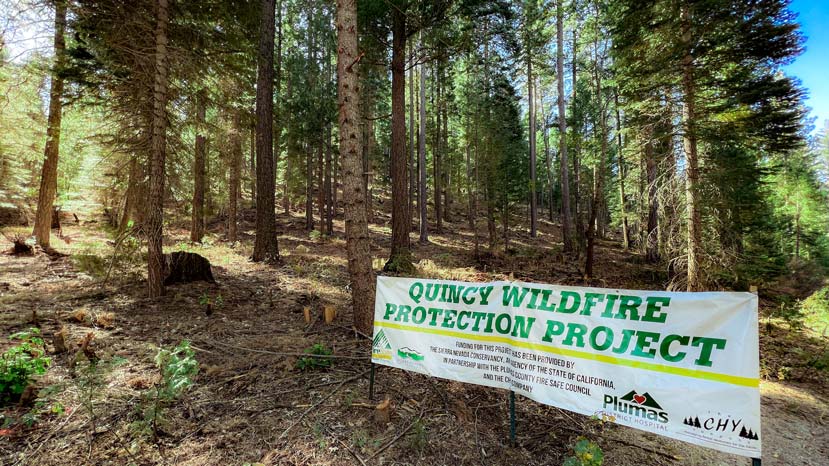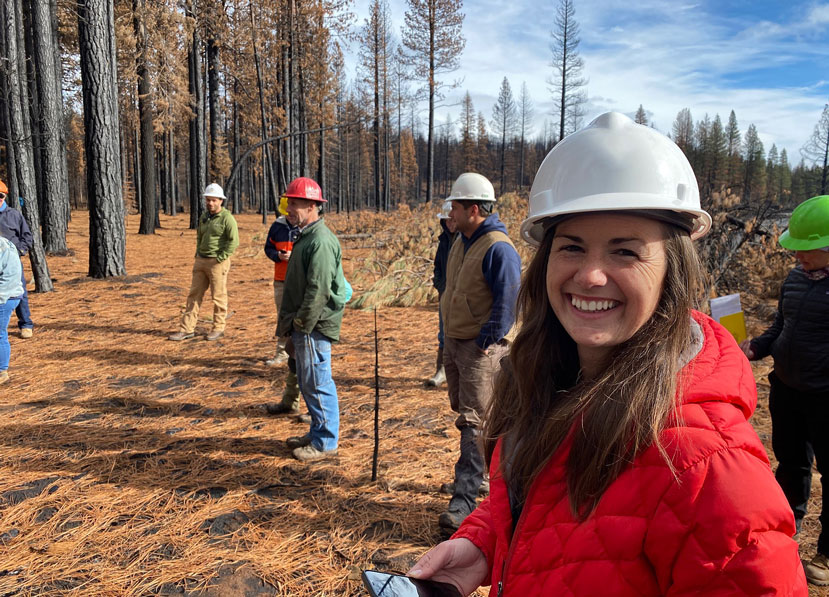
Editor’s note: This article was updated on February 1, 2023, to reflect the most up-to-date information on the Sierra Nevada Conservancy’s funding activities.
Since the passage of California’s landmark 2021 budget, the Sierra Nevada Conservancy (SNC) has witnessed an outpouring of enthusiasm from our partners, who appear prepared to increase the pace and scale of forest restoration.
Since June 2021, we have received a record $150 million in funding requests for wildfire- and climate-resilience projects, over two-times the funding that SNC has made available.
SNC funding on track to be fully committed by June 2023
In 2021, SNC received $80 million in state funding from the early action wildfire resilience package and the wildfire and climate resilience packages in the Fiscal Year 2021-22 budget. We have directed these funds to three grant programs.
Early Action Wildfire Resilience Grants
In May 2021, in response to the extreme severity of the 2020 wildfire season, Governor Newsom approved an early action wildfire resilience package that included $19 million for SNC.
We acted quickly to put early action funds to work. By July—only three months later—the funding was fully committed to 15 shovel-ready forest health- and wildfire-resilience projects. In fact, SNC received $38.3 million in proposals for $19 million available.
The message from our regional partners was clear: they are ready for funding.
Less than 1.5 years later, two of the early action projects, the Quincy Wildfire Protection Project and the Wagner Ridge Fuel Break Project, are already finished, providing much-needed protection to forested landscapes, watersheds, communities, and even an essential small-town hospital.

2021 Wildfire Resilience Funding
Amid another record-breaking fire season, in September 2021, lawmakers finalized another wildfire resilience package, this time allocating $50 million to the SNC. In developing an expenditure strategy for these funds, SNC responded to two considerations.
First, with the enactment of SB 208 on January 1, 2022, our service area grew by about 2 million acres to a grand total of 27 million acres. By launching our initial grant round in January, we ensured that new parts of Shasta, Siskiyou, and Trinity counties were able to access the funds.
Second, to help our partners do business more efficiently and more effectively, we split our funding into two grant rounds offering roughly $25 million apiece. Doing so creates certainty about future funding opportunities and offers more time to projects in the final stages of development.
Once again, the response from the region illustrates that our partners are prepared for wildfire-resilience funding.
The first $23.75 million grant round, launched in January 2022, generated 30 project proposals requesting a total of nearly $43 million. Staff funding recommendations went to SNC’s Governing Board in June, at which time over $21 million was awarded to 18 projects across the Sierra-Cascade region.
In June, we also asked our Board to approve the release of the second round of funding, making an additional $23.75 million available for Wildfire Recovery and Forest Resilience grants. This round of wildfire resilience funding received $89.5 million in proposals. Awards will begin in March 2023.
Based on the demand for project funding that we have seen in the past year, we expect that our full $50 million wildfire-resilience appropriation will be 100 percent committed by June 2023.

2021 Climate Resilience Funding
To complement the significant funds allocated to forest health and wildfire resilience, SNC is directing the $11.1 million for regional climate resilience to our Strategic Land Conservation and Vibrant Recreation and Tourism grant programs.
These programs advance climate resilience in a variety of ways, including improving habitat connectivity, stewarding carbon stores or water resources, protecting important natural or cultural sites, and expanding recreation access. They also support the state’s 30×30, nature-based climate solutions, and access-for-all priorities.
Following our Board’s approval of grant guidelines, SNC issued a request for proposals in March. We received 48 concept proposals for over $19 million, and awarded the full $10.5 million (plus additional FY 2022-23 funds) at SNC’s December Board meeting.
The Watershed Improvement Program (WIP) is a regional strategy
In all its funding decisions, SNC’s overarching strategy is to build an ecosystem of high-impact projects and robust organizations that can achieve the goals of the Watershed Improvement Program and advance state priorities throughout the Sierra Nevada and California Cascade regions.
We do this by maintaining focus on four cross-cutting priorities – forest and watershed health, strategic lands conservation, vibrant tourism and recreation, and community resilience – and by meeting our partners where they are, whether that is organizing their first collaborative meeting or leading their 10th restoration project.
To maximize the impact of all state dollars invested in the Sierra-Cascade, we also help our Regional Forest and Fire Capacity Program (RFFCP) grantees (who receive funding for capacity building, project development, and regional planning) subsequently access project planning and implementation grants from the SNC and other state- and federal-funding sources. This helps ensure that capacity and planning investments translate directly into on-the-ground resilience.
Recent outcomes of SNC’s work demonstrate the success of this approach. In 2021, we witnessed how fuels treatments along Highway 50 protected 7,500 people in Pollock Pines and Sly Park from the Caldor Fire and how a 3,500-acre prescribed fire in the Caples watershed redirected the Caldor Fire around it.
These projects were designed by locals and funded by the SNC and other state and federal agencies. The project pipeline is also growing: RFFCP grantees have already used capacity-building investments to submit more than $60 million in requests for project funding.
With the prospect of additional state and federal funding directed toward forest health and wildfire resilience, SNC is confident that our regional partners will remain prepared for action.
